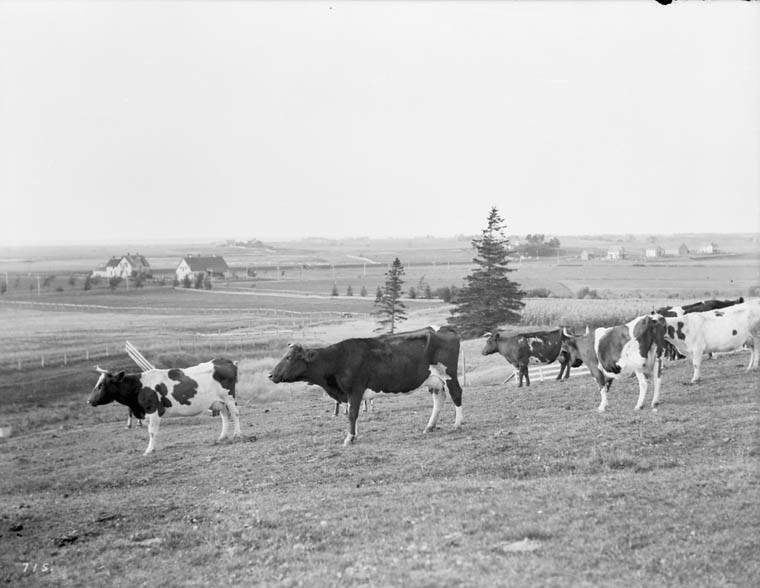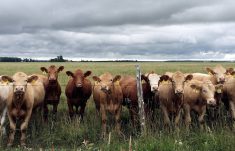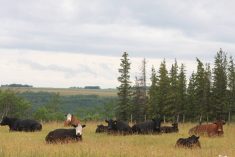One of the great issues of the modern hyper-wired information age is the perniciousness of false facts.
It seems to be all but impossible to stamp out an untruth, once it’s been released into the wild.
No matter how many actual facts one presents, there’s still going to be a cohort of people somewhere who firmly believe the Earth is flat, humankind never went to the moon and vaccines cause autism.
The first two issues are generally still considered by most to be firmly in the realm of the wing nut. Troublingly though, the last one seems to be gaining traction, if the dropping rates of immunization, especially in the wealthiest enclaves, is any measure.
Read Also

Government silence loud on AAFC cuts
Canada’s federal government trumpets fiscal responsibility; their silence on a day of massive Agriculture and Agri-Food Canada cuts was baffling at best.
What causes one of these ‘issues’ to gain traction is an interesting thing. Something that certainly seems to help is star power of any kind. High-profile adherents to bad ideas tend to bring at least some of their followers along with them.
In the vaccine debate we’ve seen this with model/actress Jenny McCarthy and then partner comedian and actor Jim Carrey, who pushed air into the sails of the long-discredited vaccine-autism link. It was first suggested by the blackballed former physician Andrew Wakefield who was struck off the U.K. medical register for unethical behaviour, misconduct and fraud.
Pro-vaccination activists estimate McCarthy’s efforts have resulted in more than 9,000 preventable deaths and 152,000 preventable illnesses in the United States alone.
Here in the agriculture sector there’s no shortage of similar misinformation efforts, and none more apparent than the safety of genetically modified foods.
Here the science is very clear, to the point of being unassailable. In 2016 the National Academies of Science, Engineering and Medicine, headquartered in Washington, D.C., issued what should be the final word on this topic, declaring they “… found no substantiated evidence that foods from GE crops were less safe than foods from non-GE crops.”
Yet the debate continues to rage on, and the latest salvo in this culture war is being filmed right now, on the streets of Winnipeg.
Last week it was announced that Academy Award winner Christopher Walken and actress Christina Ricci were in town, joined by hometown star Adam Beach, to film “Percy” based on the life of Saskatchewan farmer Percy Schmeiser, and his high-profile fight with Monsanto.
Farmers don’t tend to be the subject of Hollywood movies very often, unlike their cattle industry cousins, and they generally have to be famous for something else too.
In 1995, for example, Nick Nolte starred in the biopic “Jefferson in Paris” about a simple farmer from Monticello, Virginia who also happened to be one of the founding fathers of the United States, principal author of that country’s Declaration of Independence, and its third president.
By comparison Schmeiser’s accomplishments appear to be limited to having his hand caught in the cookie jar while intentionally violating a legal patent. After being caught, the case has been erroneously characterized as what happens after accidental contamination — a claim dropped even before it reached the Supreme Court of Canada.
The legal facts of the case say Schmeiser found, concentrated and intentionally replanted the crop. That’s not as compelling a story as the fable of a big bully that contaminated a simple farmer’s field then beat him up in the courts though.
It’s unfortunate that Hollywood has seized on this story as representative of agricultural progress, ignoring many, many other worthy subjects.
There’s Norman Borlaug, father of the Green Revolution who is sometimes credited with single-handedly saving more than a billion souls from starvation.
There’s Henry A. Wallace who founded the modern hybrid corn industry and Pioneer Hi-Bred, then went on to a career in public service that saw him serve as U.S. secretaries of agriculture and commerce, then vice-president under FDR.
There’s John Deere, the man, not the machine, who perfected the steel plow in 1837 and founded an agriculture machinery titan. Or Cyrus McCormick who similarly developed the mechanical reaper in 1931.
There’s the interesting cast of characters who made zero till practical on the Prairies and U.S. Great Plains, finding a more sustainable way to grow annual crops.
Of course these folks aren’t caught in one of the flashpoints of modern life so their achievements are going to be ignored by ideologues around the globe, and will be celebrated quietly in the sector.
Perhaps it’s time we started celebrating them more loudly. There’s no denying that without modern agriculture humanity would have surely encountered its Malthusian limitations generations ago.
That’s an exciting story, and if the industry itself won’t tell that tale, who will?















